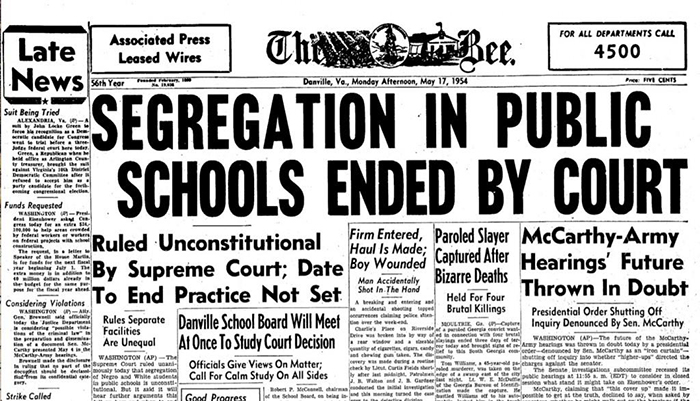
Introduction:
The Warren Court, presided over by Chief Justice Earl Warren from 1953 to 1969, occupies an esteemed place in American legal history. This period saw a series of groundbreaking decisions that profoundly reshaped American civil rights and constitutional law. Under Chief Justice Warren's stewardship, the Supreme Court played a pivotal role in advancing civil rights and bringing an end to racial segregation in the United States.
Historical Context
Before the advent of the Warren Court, racial segregation was entrenched and systemic across the United States. The notorious "Jim Crow" laws enforced racial segregation in public facilities, schools, and housing, perpetuating discrimination against African Americans and other minorities. These laws found validation in the 1896 Supreme Court case, Plessy v. Ferguson, which upheld segregation under the "separate but equal" doctrine.
The Warren Court's Landmark Decisions
The Warren Court challenged the deeply ingrained notion of "separate but equal" and initiated the dismantling of the legal scaffolding supporting racial segregation. Several seminal decisions were delivered during this epoch, each playing an instrumental role in advancing civil rights and promoting equality for all Americans. Notable among these decisions are:
-
Brown v. Board of Education (1954): Arguably the most renowned decision of the era, Brown v. Board of Education overturned the "separate but equal" doctrine articulated in Plessy v. Ferguson. The Court ruled that racial segregation in public schools contravened the Equal Protection Clause of the Fourteenth Amendment as it perpetuated a sense of inferiority among African American children. This monumental ruling laid the foundation for desegregating public schools and challenging racial segregation in all facets of public life.
-
Gideon v. Wainwright (1963): In this case, the Warren Court recognized the right to legal counsel for indigent defendants in state criminal trials. The decision affirmed that the assistance of counsel was indispensable for a fair trial, ensuring that even the most financially disadvantaged defendants had access to legal representation.
-
Miranda v. Arizona (1966): This landmark decision established the now-familiar "Miranda rights." Suspects must be informed of their right to remain silent and their right to an attorney before undergoing police interrogation. This ruling safeguards individuals' Fifth Amendment rights against self-incrimination during criminal investigations.
-
Loving v. Virginia (1967): In this case, the Court struck down laws prohibiting interracial marriage. The decision determined that such anti-miscegenation laws violated the Equal Protection and Due Process Clauses of the Fourteenth Amendment, affirming the right to marry without regard to race.
-
Roe v. Wade (1973): Though technically beyond the Warren Court's tenure, this decision was influenced by its legacy. In Roe v. Wade, the Court established a woman's constitutional right to abortion based on the right to privacy, expanding personal freedoms and women's reproductive rights.
Legacy and Ongoing Influence
The Warren Court's decisions left an indelible mark on American society by championing equality and expanding individual rights. These rulings on civil rights and racial segregation laid the groundwork for the Civil Rights Movement, which gained momentum during the 1950s and 1960s. The decisions challenged deeply ingrained racial discrimination and served as a catalyst for a new era of social progress.
Chief Justice Earl Warren's leadership and the landmark decisions of the Warren Court continue to exert a lasting influence on American jurisprudence. Their commitment to interpreting the Constitution as a living document, capable of adapting to societal changes, continues to shape the trajectory of American law and civil rights.
Conclusion:
The Warren Court's decisions, particularly those that declared legal racial segregation unconstitutional, represent a pivotal epoch in American history. Through these landmark rulings, the Warren Court championed civil rights, dismantled systemic racism, and laid the foundation for a more just and equitable society.


